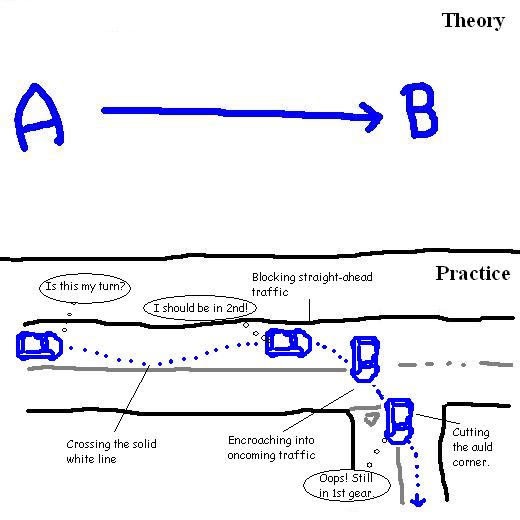Lilley makes an interesting point, as he occasionally does,
though he also misses a big one.
It's a general rule in politics that nobody cares what you do to achieve results - the ends justify the means. Attack ads are a great example - nobody likes 'em, but because they work, everyone uses them. Shouting down opponents in the Legislature, using tax dollars to fund literature critical of political opponents, intentionally spreading false rumours, etc. etc. - they're all examples of the same thing.
Believe me - if the 2011 election had produced a Liberal majority, we'd be hearing far less about the gas plants. In fact, the Opposition Parties would be mining that experience for best practises they could use. The reverse certainly has happened. Look at Stephen Harper's litany of sins - how many of them still make headlines? That's why Liberals are pulling from his playbook - his tactics have worked in strengthening the Conservatives' partisan hold (though I'd question how sustainable that hold is).
Political Parties, after all, aren't charged with promoting democracy - they're charged with winning power. Tending to democracy is, technically, the job of citizens, though we've gotten good at uploading that responsibility to others. We elect officials based partially on the individual, but to a large extent on their Party brand; who, then, are our elected officials accountable to? They only hear from their constituents every four years; the Party, however, interacts with them almost daily. At our worst, we fundamentally don't care about how well our democracy functions, either, so long as we get the small-picture wins we feel matter to us.
Our indifference to the political process serves as a dopper, snuffing the light of our democratic system.
Lilley serves as the poster boy for this laissez-faire style of democratic engagement; he doesn't care whether Rob Ford smokes crack, fuelling an illicit industry that ruins lives through addiction and ends lives through gun violence that spills out onto our streets, killing white girls like Jane Creba; Ford cuts taxes and mouths off to lefties, which is all that matters to him.
When the consequences of his short-sightedness land a little too close to home, Lilley will be among the first demanding the suppliers of Rob Ford's demand face harsh punishment. Why take the lead out of the water when it's so much easier to spend more money reactively, curing lead poisoning? To proactively determine and address the root causes of a problem's a bit too much like committing sociology.
If the ends justify the means in politics, it's because we as citizens only pay attention to the process when we aren't getting what we want. It should serve as no surprise, then, that there are no standardized checks and balances within the backrooms of Canadian politics. Being a politician is a bit like being a parent; you don't get a manual on how to hire and manage staff, best practises for organizing offices, etc. As with their role in general, the theory is that they either get it right on their own or get ousted next election.
As such, there's nothing stopping elected officials from serial hiring and firing, paying minimum wage but providing maximum workload, providing little or poor direction, or allocating more resources to partisan advertising than to working on deliverables for their constituents. Members can even spend their time learning Portuguese in a Spanish speaking country if they so choose - so long as they keep getting elected, what else matters?
The only place this complete autonomy gets checked is where the roles and responsibilities of the elected official impacts the elected official above them.
Parties need butts in seats for votes, after all; when the offhand comments of one elected official casts a shadow on the whole Party, someone has to light a fire under them to get in line.
So, who’s the top elected official in a Party? The Leader – they won their seat and they won
the leadership; if they happen to be Premier, it can be argued they won the
province, too. That gives them the
autonomy to direct their staff as they please. As they are responsible for the Party (Caucus included) producing results, it's the job of the Leader to deliver those results, by whatever means necessary - again, because in politics you are judged by what you accomplish, not how you accomplish it.
 The job of leader comes with no description, but it involves a lot of fingers in a lot of pies - planning messaging and policy, getting out and meeting with constituents, stakeholders and potential partners, attending fundraisers (Parties gotta have funds), communicating with the media, communicating with Caucus, etc., etc. One person can't do it all, so they need staff to assist. It's all well and good to turn to other elected officials to serve as House Leader or Caucus Whip, but those elected officials have their own ridings to tend to, as well - meaning that at the end of the day, staff have to keep the machine rolling.
The job of leader comes with no description, but it involves a lot of fingers in a lot of pies - planning messaging and policy, getting out and meeting with constituents, stakeholders and potential partners, attending fundraisers (Parties gotta have funds), communicating with the media, communicating with Caucus, etc., etc. One person can't do it all, so they need staff to assist. It's all well and good to turn to other elected officials to serve as House Leader or Caucus Whip, but those elected officials have their own ridings to tend to, as well - meaning that at the end of the day, staff have to keep the machine rolling.
What happens when you have the staff of one supremely
autonomous elected official running up against elected officials with fewer
titles under their belt? Does the hired hand representing the will of the Leader trump the official only elected in one riding? If you're that senior staffer, being pressured to deliver results regardless of consequence, what would you do when faced with a lower-tier official not falling in line?
Of course, this is all just theoretical – for us private citizens, for elected officials and for staffers themselves. There are no written
protocols on responsibility, chain-of-command between staff at one tier vs.
officials/staff at another. That's all process stuff which nobody has historically had time for - remember, the means don't matter, only the ends do. When you don't care how you get from A to B, you take the easiest route possible, even if it isn't the safest. Political staff make it up as they go along, just as the elected officials do.
When there’s
no established communications protocol between partners, you end up with pushing matches that devolve into threats based on who has the most influence. As such the people at the top (either elected or appointed) conclude “we are smart, they are dumb” to justify the application of excessive pressure to deliver the results they think are appropriate.
Influence, by the way, always translates into money –
Members who do a lot of fundraising have more clout with the Centre. The Centre has clout in that they can
allocate or not allocate resources for elections or provide “wins” like
development projects for ridings for Members who tow the line. The end goal, of course, is always to gain or retain enough seats to hold power - not to make society function better.
This doesn't apply to just one Party – that’s politics, period. The same failings that landed us with the gas plants have led to fake lakes, robocalls, Walkerton and the 407. There are no written rules of conduct, no communications
protocols and most egregious, no training on how to do the internal stuff
well. As a result, you end up with front line staff who have neither training nor a clear mandate for their jobs, elected officials who have no internal office support, a lack of clarity of communication between all levels of the political system, so on and so forth. Talent does sometimes get rewarded, but more than anything it's those best able to keep others in line, regardless of the social cost for doing so, that get ahead.
That's politics - lots of friction, lots of heat, but far less light than there could be. Instead of finding efficient ways to channel that friction into positive, productive energy, we have this habit of pouring gas on the fire.
Rob Ford is great at this, which probably accounts for his success. In other contexts, saying that supporting liberal policies is like putting a gun in someone's hand would result in a telephone call from the police for issuing a threat; when it comes from an elected official - even one elected in a different jurisdiction - the standards are different.
Let's not forget that the Rob Ford staffer who tried to bring some accountability to the whole crack-smoking affair got canned. What example does that set for his replacement?
There's always talk about the need for politics to function more like a business; well, the best businesses offer direction, support and training to their staff; they understand they can only get out of their process what they put in to it. Achieving, not winning, is their goal.
Until we start believing that the ends don't justify the means and respond accordingly - starting with appropriate internal training for Politicians and their staff - we are condemning ourselves to burn.





No comments:
Post a Comment